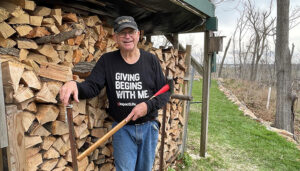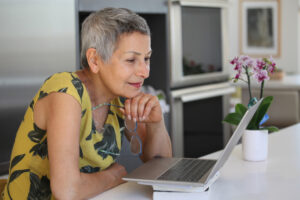Fatigue is another very common long-term effect of cancer treatment. While we often think about fatigue in regard to active chemotherapy or radiation treatment this can go on well into survivorship for months or even years after treatment. According to the National Comprehensive Cancer Network (NCCN) fatigue related to cancer is subjective to each individual and can include not only physical, but also emotional and cognitive tiredness (2021). It is not related to the output of activity but does interfere with activities of daily living. There are a lot of statistics out there about cancer-related fatigue, but generally about 30% of cancer survivors report some type of chronic fatigue.
Fatigue can be caused by many different factors and so each person should be evaluated by a medical professional to determine if there is an underlying cause for their fatigue. Some of the factors include pain, emotional distress, anemia, sleep disturbances, poor nutrition, medication side effects, hormonal imbalances, and medical conditions such as heart or lung problems.
If no other factors have been found to contribute to fatigue and it is determined that the fatigue is related to previous cancer treatments, there are some options to help treat this type of fatigue.
Physical Activity
Studies have shown that physical activity and especially engaging in yoga is helpful for combatting cancer-related fatigue. Starting or maintaining an exercise routine is very important. It can help increase aerobic capacity and help with deconditioning. It also produces endorphins that help lift one’s mood and boost the immune system.
Conserve Your Energy
Save your energy for your most important activities. Determine what is most important and when these activities typically occur. Then make changes in your day so that when those times come you have the energy needed.
Take It Easy
Listen to your body and take a rest if you need it. If you know that you need to rest set aside time in your day for this. Take a nap, if needed, but not for more than 1 hour. We don’t want you to sleep all day and be up all night.
Mental Health Interventions
Participating in counseling, cognitive behavior therapy, meditation, and mindfulness are all great ways to help combat fatigue. Massage and acupuncture can sometimes be helpful too.
Medications & Supplements
A few individuals do need to take medications and or supplements for their fatigue. If you find the other options listed are not enough to help with your own symptoms of fatigue, please talk to your doctor about these other options.
The Nassif Community Cancer Center is here to help with your cancer related fatigue. We have two licensed social workers that are available to talk with and help set up counseling for you if needed. We have an exercise specialist for one-on-one exercise and dietitians available to help with any diet concerns. The Cancer Center also offers reduced-cost massage, Healing Energy therapy, and acupuncture.
If you would like to schedule an appointment for any of these services or would like further information, please call (319) 558-4876. You can also get more information by visiting our website.
Resources:
National Comprehensive Cancer Network: NCCN Clinical Practice Guidelines in Oncology: Cancer-Related Fatigue. Version 1.2021. Plymouth Meeting, Pa: National Comprehensive Cancer Network, 2020. Available at https://www.nccn.org/professionals/physician_gls/pdf/fatigue.pdf, Last accessed February 3, 2021.
Submitted by:
Heather Dommer
ARNP







